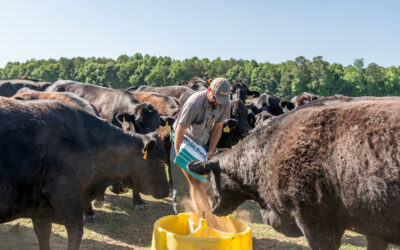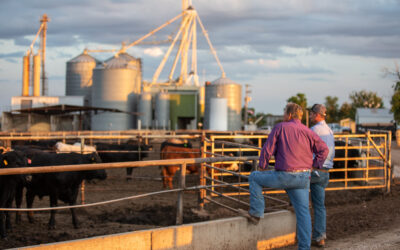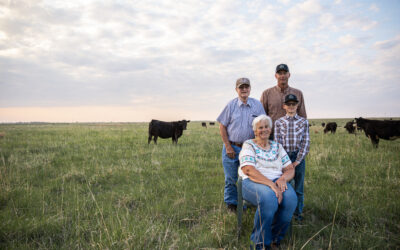
Four things I’ve learned from Busby
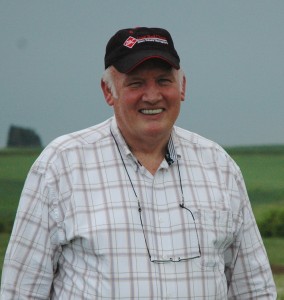
A lot of people have asked Darrell Busby a lot of questions over the years.
I’m one of them. He’s not only a great interview source, with years of knowledge and a knack for breaking down research into “why it matters to cattlemen,” but he’s also just plain one of the nicest guys I know. He’s answered questions on cattle health, disposition and carcass quality. He’s answered questions on retained ownership and feed programs.
Last week, he was recognized for those years of answers by some of his own. The Iowa Cattlemen’s Association inducted Darrell into their Hall of Fame.
But the retired Iowa State University Extension specialist says it’s more the questions he’s asked, than the ones he’s answered.
He’s been leading the Iowa Tri-County Steer Carcass Futurity (TCSCF) since its inception.
“All of the research work we have done has been retrospective. We try to do the best job we can with the cattle, and then we go back and ask ourselves why we see some differences,” Darrell told me back in 2009 when the futurity won an annual award from CAB.
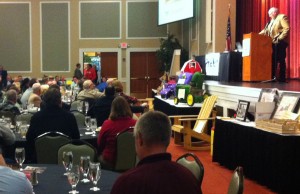
I couldn’t begin to recount all the times I’ve drawn information from Darrell and that database for articles. It’s one of the most complete sets that follows cattle from origin to packing plant.
Rather than dig all that up, I thought I’d share four things (of the countless number) I’ve learned from Darrell Busby:
- If you do a little extra as a rancher, you ought to think about retaining ownership. “We find many producers have spent time and effort selecting genetics that are high-quality, fast-gaining cattle and have gone through the rigors of preconditioning their calves–retained ownership offers them the opportunity to take advantage of the genetics and management that they’ve put into their cattle,” he says.
- If you’re going to wean, do it right. “What we found was that the calves that had not been weaned the full 30 days got just as sick as the unweaned calves. That’s one of the management traits that we picked out: if you’re not going to wean the calves more than 30 days then don’t wean them at all when you send to the feedyard. Weaning is big.” He also points to data that strongly supports the use of modified-live vaccines as opposed to killed ones.
- Disposition matters. After having a couple of workers get hurt, Darrell thought about a way to measure that and found: “Calmer cattle are faster-gaining cattle. They’re higher-quality grade cattle and they’re more profitable cattle. They make about $56 more/head in the feedlot than the wild cattle do.”
- It’s about more than just cattle. “This is a people business and the cattle happen to be what we are using to try and produce a better quality product. This is about people helping each other solve problems and create opportunities.”
I can firsthand vouch for his ability to do just that: help solve problems.
From the Black Ink team, thank you Darrell for your service to the industry, and congratulations on your recognition. Well deserved!
May your bottom line be filled with black ink,
Miranda
You may also like
You, Your Cows and Their Feed
Expert guidance from Dusty Abney at Cargill Animal Nutrition shares essential strategies for optimizing cattle nutrition during droughts, leading to healthier herds and increased profitability in challenging conditions.
Marketing Feeder Cattle: Begin with the End in Mind
Understanding what constitutes value takes an understanding of beef quality and yield thresholds that result in premiums and/or discounts. Generally, packers look for cattle that will garner a high quality grade and have excellent red meat yield, but realistically very few do both exceptionally well.
Nebraska Ranch Receives Certified Angus Beef Commercial Award
Troy Anderson, managing a Nebraska ranch, focuses on breeding thriving maternal cows that will grade premium Choice and Prime, while respecting livestock, people and land. Anderson Cattle receives the 2023 CAB Commitment to Excellence Award. Their journey includes improving genetics, feeding home-raised and purchased calves and using data for better breeding decisions, all with a bottom-line approach.

